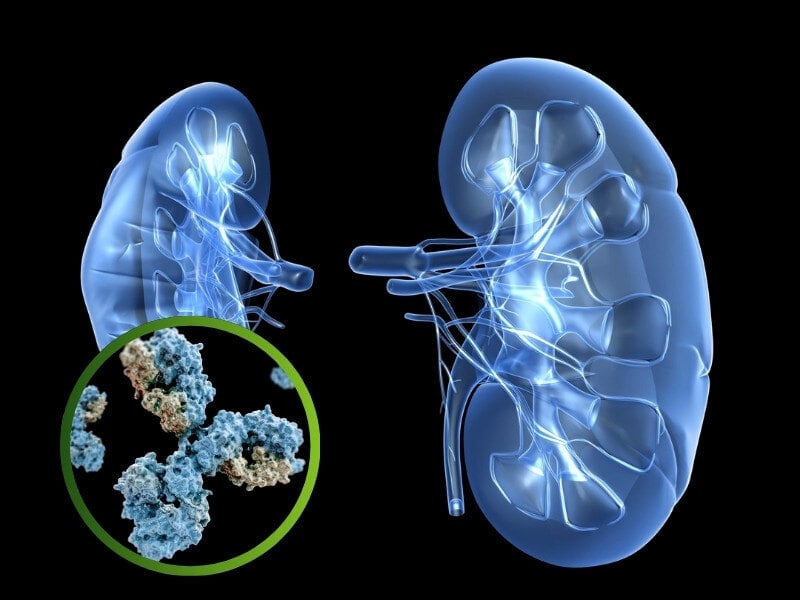AstraZeneca and Daiichi Sankyo Share Results of IO Combination Therapy in Ib Clinical Trial

AstraZeneca and Daiichi Sankyo have released some results from their phase Ib clinical trial dubbed TROPION-Lung02. The trial investigated datopotamab deruxtecan (Dato-DXd), an antibody drug conjugate (ADC) which is developed jointly by the two companies, in combination with pembrolizumab.
The trial, which looked at patients with or without platinum based chemotherapy, reported promising clinical activity and no new safety concerns. The therapy aims to treat advanced or metastatic non-small cell lung cancer (NSCLC) without actionable genomic alterations (AGAs), which is diagnosed in more than one million people per year.
Dato-DXd targets the protein TROP2 which has no clinically approved ADC targeting it despite being expressed on over 90% of NSCLC tumours. The first line of treatment for NSCLC, immune-checkpoint inhibitors, improves outcomes for patients with or without chemotherapy, although most eventually have their disease progress.
RELATED:
- T Cell Atlas of Tumour Microenvironment Identifies Previously Unknown Cell State
- Antibody Therapies to Get Boost from Genmab and Argenx Partnership for Immunology and Oncology
- Cancer Vaccines: Analysing the Resurgence
Yasushi Goto, a doctor and investigator who works in the Division of Internal Medicine and Thoracic Oncology at Japan’s National Cancer Center Hospital, said:
“Nearly all patients with advanced non-small cell lung cancer experience disease progression following initial therapy, underscoring the need for novel therapeutic approaches across treatment lines. The updated results from TROPION-Lung02 signal the potential for datopotamab deruxtecan combinations to improve outcomes for patients with non-small cell lung cancer and are a promising development in the pursuit of a new standard treatment option beyond immunotherapy.”
The study found a 38% objective response rate from the patients treated with the combination of Dato DXd and the immune checkpoint inhibitor pembrolizumab. In patients also receiving platinum based chemotherapy, the ORR jumped to 49%. It looked at patients who both had and hadn’t been previously treated for their disease. The best response rates were observed in previously untreated patients with ORRs of 50% and 57%.
These results were presented to the American Society of Clinical Oncology’s Annual Meeting on Tuesday. Cristian Massacesi, Chief Medical Officer and Oncology Chief Development Officer at AstraZeneca, commented: “These data, alongside previous results for datopotamab deruxtecan combined with an immune checkpoint inhibitor, reinforce the potential of these combinations to improve outcomes for patients with different advanced cancers.”
Also commenting on the data Mark Rutstein, Global Head of Oncology Clinical Development at Daiichi Sankyo, said: “These early data give us confidence in the ongoing Phase III development programme evaluating datopotamab deruxtecan combinations as potential first-line treatment options for patients with advanced lung cancer across tumour histologies and PD-L1 expression levels.”
See the upcoming events in Oxford Global’s Immuno series here.
Get your weekly dose of industry news?here?and keep up to date with the latest?‘Industry Spotlight’ posts.?For other Immuno content, please visit the?Immuno Content Portal.







